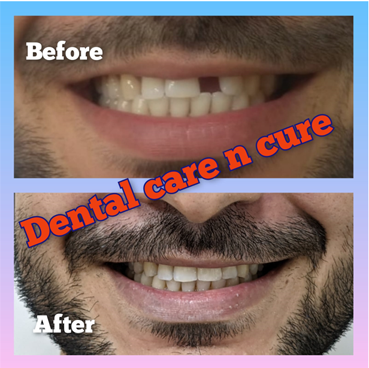Dental Implants
DENTAL IMPLANTS
Dental implants are replacement teeth that look and feel just like your own. One can eat and drink everything without the inconvenience of unretained dentures, partials and missing teeth.
You are a candidate for dental implants if you fit into one of these categories:
- Missing one or more teeth?
- Having trouble with dentures or partials?
- Unhappy with your bridge?
If you have lost teeth you are a candidate for dental implants.You should be in good health, however, as there are some conditions and diseases that can affect whether dental implants are right for you. For example, uncontrolled diabetes, cancer, radiation to the jaws, smoking, alcoholism, or uncontrolled periodontal (gum) disease may affect whether dental implants will fuse to your bone. It is important to let your dental surgeon know all about your medical status (past and present) together with all medications you are taking, whether prescribed, alternative (herbal) or over-the-counter

Why should you get Dental Implants?
Dental Implants in Paschim Vihar, West Delhi restore your natural chewing function, giving you the freedom to enjoy foods that were previously too "difficult" to eat Whether it is for biting an apple or chewing meat, these are strong enough to withstand the tremendous natural forces. They let you regain the closest feel, look and function of your natural teeth. These look just like (and sometimes better!) than your natural teeth. Dental Implants make you feel confident as they come with the assurance that they won’t ever loosen up or move. Dental Implants in Paschim Vihar also help you do away with those viscous adhesives and it makes it possible for you to forget those denture clasps which placed damaging pressure on gums and the remaining natural teeth. These last a lifetime, giving you a better than expected return on your time and money.
The procedure of placing Dental Implants
It takes a dental team to assess and plan dental implant placement and restoration — the fabrication of the crowns, bridgework or dentures that attach atop the implants and are visible in your mouth. The dental team consists of a dental surgical specialist — a periodontist, oral surgeon, or a general dentist with advanced training in implant surgery; a restorative dentist, who plans and places the tooth restorations; and a dental laboratory technician who fabricates them. Placing dental implants requires a surgical procedure in which precision channels are created in the jawbone, often using a surgical guide. The implants are then fitted into the sites so that they are in intimate contact with the bone. They generally require three to six months to fuse to the bone before they can have tooth restorations attached to them to complete the process.
Options you have for implant tooth replacement
Single Tooth Replacement: Immediately (at the same time an implant is placed) or after a period of healing, an abutment is attached to the implant. This is a device that “abuts” or joins the implant to a tooth form called a crown, which replaces the tooth part you see in the mouth. It will hold a custom-made crown that the dental laboratory will fabricate and match to your existing teeth. The custom crown is cemented or screwed onto the abutment to permanently keep it in place. Once the crown is in place, it should be indistinguishable from your natural teeth.
Fixed Multiple Tooth Replacement: Similar to single tooth replacement, temporary healing caps or abutments are also placed in case of fixed multiple implants until the healing phase is complete. After healing, permanent abutments are attached to the implants. They can attach to custom-made crowns or bridgework that a dental laboratory will fabricate to match your existing teeth. In the final step, the custom bridge, which will replace multiple teeth, is cemented or screwed onto the abutments. The teeth have been replaced without disturbing the healthy teeth next to them, and bone loss has been halted.
Removable Implant-Supported Tooth Replacement: If all of your lower teeth are missing, depending on the design of the removable restoration, two to six implants may be used to support a lower denture. If all of your upper teeth are missing, a minimum of four implants may be used to support an upper denture. Removable dentures are often used to replace extensive tooth, bone and gum-tissue loss, thus providing support for the facial skeleton, lip and cheeks. A new denture can have attachments that snap or clip it into place on the implants or a custom made, milled bar can be fabricated to create additional strength and support for the restoration. Design variations are often related to your bone density and number of implants present; your dentist will discuss these options during your consultation. A significant advantage of a removable denture is facilitating the cleaning of the dental implants. Implant supported fixed complete denture: Using dolder bar.
What type of maintenance do dental implants require?
Implant crowns and other prosthetic (false) tooth replacements are made to be remarkably failsafe systems. They are removable and replaceable (only by your dentist), so that if damage or wear necessitates replacement, this can be accomplished without affecting the implant(s) or attachment to the bone. Nevertheless, implants do require maintenance. It is important to practice good daily oral hygiene, including brushing and flossing to control bacterial bio film. It is also important to see your dentist and dental hygienist. Special instruments are necessary to clean dental implants that will not damage their metal surface beneath the gum tissues. Your dentist will need to monitor your implants to make sure the integrity of the osseointegration is stable, and that the implant crowns, bridgework or dentures are functioning adequately.

 Our Location
Our Location +91- 9310999214
+91- 9310999214